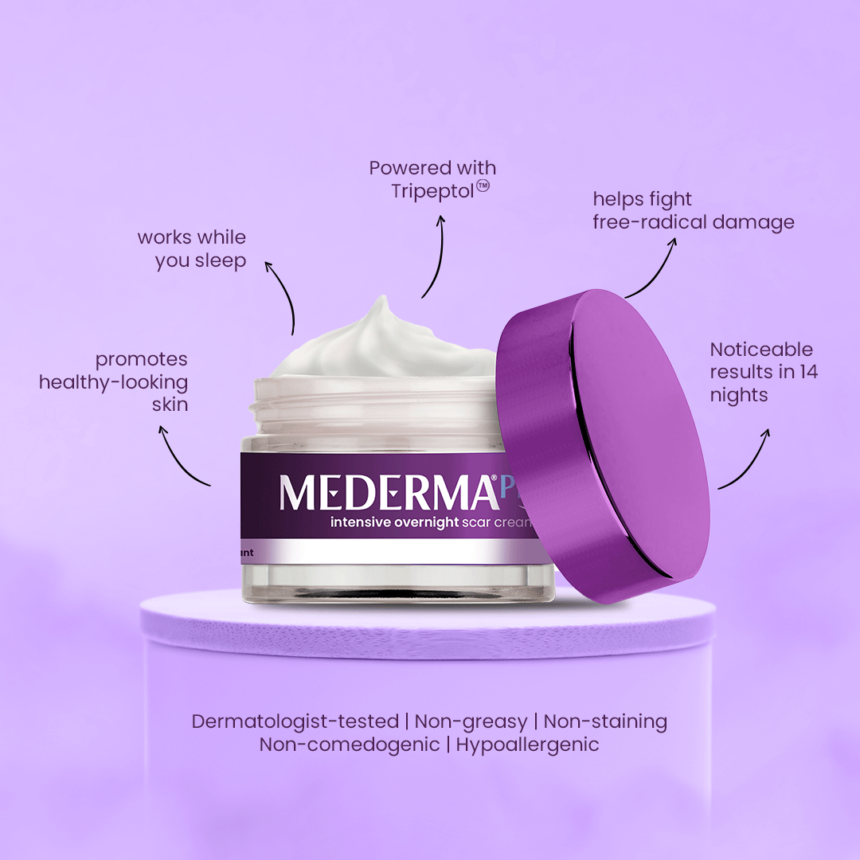Dealing with pimple scars can be frustrating, especially if you have sensitive skin. Many creams on the market promise to reduce the appearance of scars, but not all are suitable for sensitive skin types. The issue lies in finding a product that effectively treats scars without causing irritation or redness.
There are pimple scar creams specifically designed for sensitive skin. These creams combine gentle ingredients that promote healing while soothing the skin. Studies show that creams with ingredients like Allium Cepae (onion extract) and Panthenol (pro-vitamin B5) can help reduce scar visibility gently.
If you’re looking for a solution that truly works, choosing a cream formulated for sensitive skin is key. This way, you can help reduce the appearance of scars while keeping your skin calm and healthy.
Common Ingredients That Can Affect Sensitive Skin
When looking for a pimple scar cream, it helps to know what ingredients might work differently on sensitive skin. Some ingredients are great for treating scars but can sometimes be too strong for more delicate skin. Here are a few to keep in mind:
- Retinoids: These are often used to improve skin texture and fade scars. They work well for many people, but if your skin is sensitive, you should use them carefully since they can sometimes cause redness or dryness.
- Salicylic Acid is great for clearing pores and smoothing out the skin, but it can be drying for some. If you have sensitive skin, it’s good to be mindful of how often you use products with this ingredient.
- Benzoyl Peroxide: This ingredient fights bacteria and can effectively reduce scar visibility. It can be strong, so starting with a lower concentration is best if your skin is irritated.
Recommended Pimple Scar Creams for Those with Sensitive Skin
If you have sensitive skin, using the right pimple scar cream can make a difference. Here’s what to look for:
- Soothing Ingredients: Aloe vera and panthenol are great for calming the skin. They help reduce redness and support healing while being gentle enough for daily use.
- Moisturising Elements: Ingredients such as glycerin and dimethicone provide much-needed hydration. Keeping the skin moisturised is key to helping scars heal and keeping sensitive skin comfortable.
- Skin-Loving Extracts: Components like Allium Cepae (onion extract) work overtime to improve scar appearance without being harsh. This is a gentle option that’s kind to sensitive skin.
How to Test a Product Before Full Application?
Before fully using a pimple scar cream, test the product to make sure it suits your skin, especially if you have sensitive skin. Here’s a simple way to test any new cream:
- Start with a Patch Test: Dab some of the cream on a small area like your wrist or behind your ear. These spots are sensitive, like facial skin, so they’re perfect for testing.
- Watch for Any Reactions: Give it 24 to 48 hours to see if there is any redness, itching, or irritation. If all looks good, that’s a positive sign!
- Look Out for Delayed Reactions: Some reactions might not immediately appear. Keep an eye on the spot for a couple more days to ensure no delayed sensitivity.
- Introduce Gradually: Even after a successful test, slowly use the pimple scar cream on your face. Apply a small amount at first, then gradually use more over a week. This helps your skin adjust gently.
Tips for Soothing Sensitive Skin While Treating Scars
Sensitive skin needs extra care, especially when using a pimple scar cream. Here are some ways to keep your skin calm and comfortable while working on scars:
- Use a gentle moisturiser that hydrates your skin without irritating it. Look for ingredients like glycerin and dimethicone, which help lock in moisture.
- It’s tempting to use more pimple scar cream, hoping for faster results, but it’s better to stick to the recommended amount. Overusing products can lead to more sensitivity.
- If your skin starts to feel irritated, use a cool cloth or aloe vera to soothe it. Aloe is great for calming redness and irritation.
- Always apply sunscreen, as treating scars can make your skin more sensitive to the sun. A good sunscreen will protect your skin and help prevent any further damage.
- Use a mild cleanser that doesn’t remove natural oils from your skin. This will keep your skin barrier strong while you’re treating scars.
Finding the Right Balance Between Treatment and Care
Managing pimple scars while managing sensitive skin can be challenging. It’s okay to take your time and be gentle with your skin. However, the right product can make a big difference. For example, Mederma® PM Intensive Overnight Scar Cream works while you sleep, allowing your skin to heal without irritation.
Every step you take towards caring for your skin is a step in the right direction. Be patient with yourself and your skin, and trust that with the right care, you’re helping your skin become healthier and stronger. You’re doing great—just keep going!


Leave a Reply